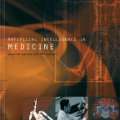We consider offline imitation learning (IL), which aims to mimic the expert's behavior from its demonstration without further interaction with the environment. One of the main challenges in offline IL is dealing with the limited support of expert demonstrations that cover only a small fraction of the state-action spaces. In this work, we consider offline IL, where expert demonstrations are limited but complemented by a larger set of sub-optimal demonstrations of lower expertise levels. Most of the existing offline IL methods developed for this setting are based on behavior cloning or distribution matching, where the aim is to match the occupancy distribution of the imitation policy with that of the expert policy. Such an approach often suffers from over-fitting, as expert demonstrations are limited to accurately represent any occupancy distribution. On the other hand, since sub-optimal sets are much larger, there is a high chance that the imitation policy is trained towards sub-optimal policies. In this paper, to address these issues, we propose a new approach based on inverse soft-Q learning, where a regularization term is added to the training objective, with the aim of aligning the learned rewards with a pre-assigned reward function that allocates higher weights to state-action pairs from expert demonstrations, and lower weights to those from lower expertise levels. On standard benchmarks, our inverse soft-Q learning significantly outperforms other offline IL baselines by a large margin.
翻译:暂无翻译



